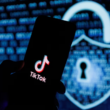The Metaverse already has sexual harassment allegations swirling around it. Less than two weeks before the virtual reality “Horizons World” opened to the public, a beta user reported she was sexually harassed.
On November 26, a beta user reported another user for groping her avatar. Meta began their investigation after receiving the report. On December 1, the user posted about her experience in the Horizon World beta testers’ Facebook group.
She wrote:
“Sexual harassment is no joke on the regular internet, but being in VR adds another layer that makes the event more intense. Not only was I groped last night, but there were other people there who supported this behavior which made me feel isolated in the Plaza.”
Metaverse opened to the public on December 9 to those aged 18 and older in North America. Up to 20 avatars can explore, hang out, and build within the virtual space simultaneously. They don’t have to know each other in real life to share the virtual experience.
In March, the head of Meta Reality Labs, Andrew Bosworth, stated that virtual reality could be a “toxic environment,” worsening bullying and overall bad behavior. The Facebook whistleblower documents revealed that the company knew its toxicity for users within its platforms.
In light of these allegations, it seems “Horizon World” is placing all responsibility directly on the user.
The response from Meta pointed to a “Safe Zone” feature that the user should have engaged. When a user activates the Safe Zone feature, a bubble populates around them. It prevents others from talking to them, touching them, or interacting with them in any way until the user chooses to turn it off. There is also an option to block any user one chooses.
While a great feature, one must be aware that it exists in order to turn it on. A heightened state of emotion may cloud a user’s ability to remember that such a feature exists.
It’s unclear why Meta has allowed such a loose safety protocol, even among beta users. It is not the first to expand into virtual reality, and other companies have already faced this problem.
The Vice President of Horizon, Vivek Sharma, claims that the feedback will help them adjust. Unfortunately, this means that real people will have to suffer real consequences before anything is done.
Vivek said, “That’s good feedback still for us because I want to make [the blocking feature] trivially easy and findable.”
Though no touch has been truly physical, the brain doesn’t understand the difference between virtual and actual reality. The damage is just the same.
A researcher of online harassment at the University of Washington, Katherine Cross, has found that when a virtual reality experience is immersive and authentic, the toxic behavior within that environment is also real.
She stated, “At the end of the day, the nature of virtual-reality spaces is such that it is designed to trick the user into thinking they are physically in a certain space, that their every bodily action is occurring in a 3D environment. It’s part of the reason why emotional reactions can be stronger in that space, and why VR triggers the same internal nervous system and psychological responses.”
- West Point Reimposes Rules on Unvaxxed Cadets - January 31, 2023
- Warroom Host Claims Mother Jones Magazine Publishes Chinese Propaganda - January 31, 2023
- CCP Allegedly Weaponizing the DOJ - January 25, 2023











Now that’s hilarious
Um, shouldn’t that be a clue that this is dangerous territory that we should not be entering into. I mean, this is just the gateway to transhumanism. Is this really what people want? Because if so, have at it! The nightmare is all yours!